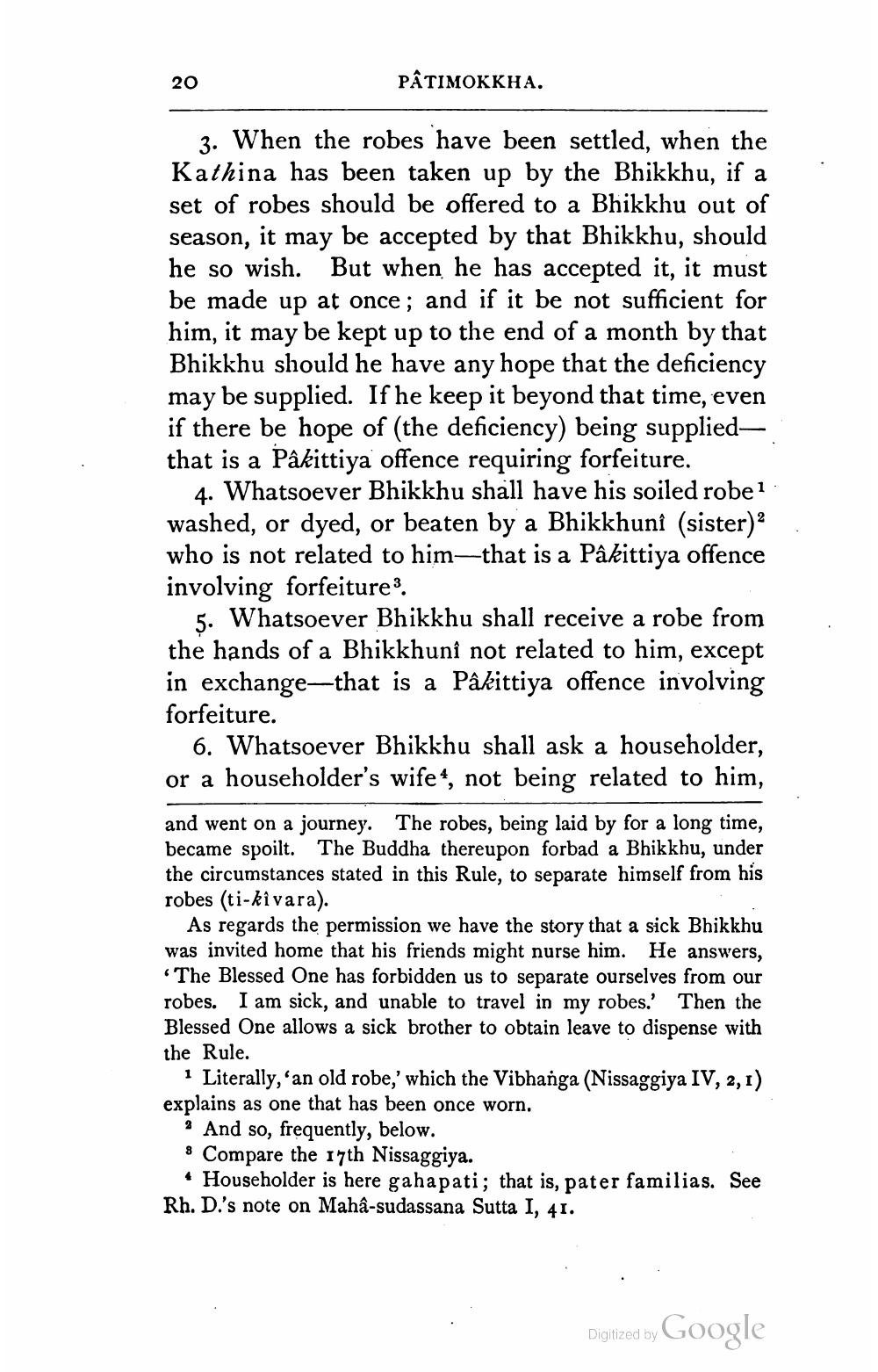________________
20
PÂTIMOKKHA.
3. When the robes have been settled, when the Kathina has been taken up by the Bhikkhu, if a set of robes should be offered to a Bhikkhu out of season, it may be accepted by that Bhikkhu, should he so wish. But when he has accepted it, it must be made up at once; and if it be not sufficient for him, it may be kept up to the end of a month by that Bhikkhu should he have any hope that the deficiency may be supplied. If he keep it beyond that time, even if there be hope of (the deficiency) being suppliedthat is a Pâkittiya offence requiring forfeiture.
4. Whatsoever Bhikkhu shall have his soiled robe? washed, or dyed, or beaten by a Bhikkhunî (sister) ? who is not related to him—that is a Pâkittiya offence involving forfeiture3.
5. Whatsoever Bhikkhu shall receive a robe from the hands of a Bhikkhunî not related to him, except in exchange—that is a Pâkittiya offence involving forfeiture.
6. Whatsoever Bhikkhu shall ask a householder, or a householder's wife4, not being related to him,
and went on a journey. The robes, being laid by for a long time, became spoilt. The Buddha thereupon forbad a Bhikkhu, under the circumstances stated in this Rule, to separate himself from his robes (ti-kî vara).
As regards the permission we have the story that a sick Bhikkhu was invited home that his friends might nurse him. He answers, "The Blessed One has forbidden us to separate ourselves from our robes. I am sick, and unable to travel in my robes.' Then the Blessed One allows a sick brother to obtain leave to dispense with the Rule.
1 Literally, an old robe,' which the Vibhanga (Nissaggiya IV, 2, 1) explains as one that has been once worn.
? And so, frequently, below. 8 Compare the 17th Nissaggiya.
• Householder is here gahapati; that is, pater familias. See Rh. D.'s note on Mahâ-sudassana Sutta I, 41.
Digitized by
Dialized by Google




